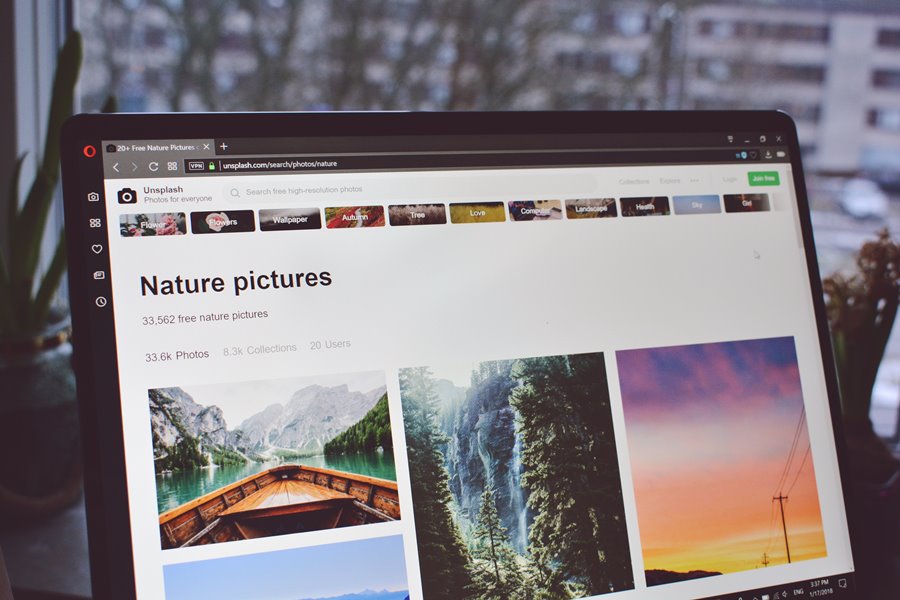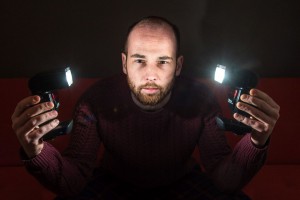Ben Davis asks: Is photography the least respected form of media?

Image by Panos Sakalakis.
Over the past decade or so, there have been a number of attempts to curb online piracy. In an age where we consume largely digital media, we’re regularly warned about copyright theft. Those who pirate content may receive letters from their Internet service provider, threatening to cut-off their connection, and websites that promote illegal file sharing are quickly shut down. But even if you’ve never pirated movies or music, I’m willing to bet that you’ve downloaded at least one image without consulting the copyright holder.
This was highlighted back in November, when rock legend Brian May’s Instagram account was disabled, following a copyright violation for an uncredited image. May posted a screenshot of the message he received from Instagram, alongside the following message (illustrated below).
In the photographer’s defence, contacting a celebrity with over 130,000 followers isn’t particularly easy, and Instagram allows users to report incidents of copyright violation quickly and simply — just four clicks and you’ve accessed the help page in which to pursue a copyright infringement claim. If someone is using an image you own on their Instagram account, without permission, and you want to stop them from doing so, this is the quickest route to take.
For me, Brian May’s situation is a bit of a grey area. If a person or company wants to use a photograph to directly advertise, or promote goods or services then they should certainly be paying for the use of an image. When individuals use imagery to promote their own personal brand, or communicate with friends or fans, I think a credit to the creator is sufficient. If not, images would never go viral and the spread of ideas would suffer. Social media is still relatively new, and the ethical laws that govern this space are still being formed, but this is the emerging practice regarding the copyright of images (it’s the same for music and video); users are free to share content that has been uploaded or granted permission by the copyright holder(s).
And yet, Brian May’s response argued the following: “You not only took my picture and are evidently exploiting my image, and making money off me without so much as a 'by your leave' - but you actually stop me using a picture of myself! What a crazy world we live in these days [sic].”
On the one hand, it’s easy to sympathise with May’s frustration — we feel entitled to images of ourselves — on the other, portrait photographers wouldn’t make a penny if this argument was followed to its logical conclusion. What does surprise me regarding Brian May’s stance is that, not only does he have a keen interest in photography (Victorian stereoscopic photography to be precise), but in 2012 he signed a letter to David Cameron the (then) British prime minister, calling for action regarding online piracy to protect the incomes of artists in the digital age. Surely the photographer in question, Barbara Kremer, was seeking to protect her own copyright?
A look at the comments on May’s Instagram post reveals a definite split in opinion. Some people even argue that as the photograph was taken on private property — where photography is restricted — then you have no right to claim copyright. I’m no lawyer, but it seems reasonable to me that the creator should still own the copyright, while being prevented from profiting from the image without the consent of the subject or venue. In regards to the Kremer photo, there doesn’t seem to be any evidence that supports her profiting from the image.
Brian May has since called for an end to the online bickering. And while it was nothing more than a storm in a teacup, the incident does highlight how we perhaps regard the copyright of a photograph as different to that of other media formats.
Whenever there’s a copyright story in the press, it’s usually about fighting against illegal film or music downloads, or a song that closely resembles another. The most high-profile photography copyright case of recent years regarded the ownership of ‘selfies’ taken by a crested macaque, while operating the camera of David Slater. A lawsuit was filed by animal rights organisation PETA, which questioned the photographer's ownership of the images. The two parties have since reached an agreement; the photographer still owns the image, but will donate a percentage of its future revenue to relevant conservation charities.
Regardless as to whether or not you agree with the outcome, this does beg the question: Would a situation like this have been taken as seriously if a monkey had pressed, say, the record button on a professional filmmaker’s camera? I’m not so sure. I’d argue that the copyright of a photograph is respected less, because most people have experience taking pictures, as opposed to recording albums or directing movies. Photography is a much more accessible art form and perhaps this is why it garners less respect when it comes to copyright. It’s also far easier to download copyrighted images than it is to illegally download other forms of media — when something is as simple as right click and save, there’s no stigma attached.
The experience of using a computer and the Internet doesn’t set us up for respecting the copyright of images. These two factors mean photographers are faced with an uphill battle when protecting their copyright in the digital age. The key is deciding which cases are worth fighting, and which you’re better off forgetting.
Please note: The opinion(s) expressed in this article belong to the author and do not necessarily reflect the opinion(s) of Wex Photo Video.
About the Author

Ben Davis is an award-winning professional photographer with more than 10 years' experience in the industry. His internet home is www.cambridgeshireweddingphotography.com
Related articles
Perspective: Subjects Are More Important than Photographers
Perspective: Camera Names Are Ridiculously Confusing
Perspective: Instagram is One of the Best Things to Happen to Photography

